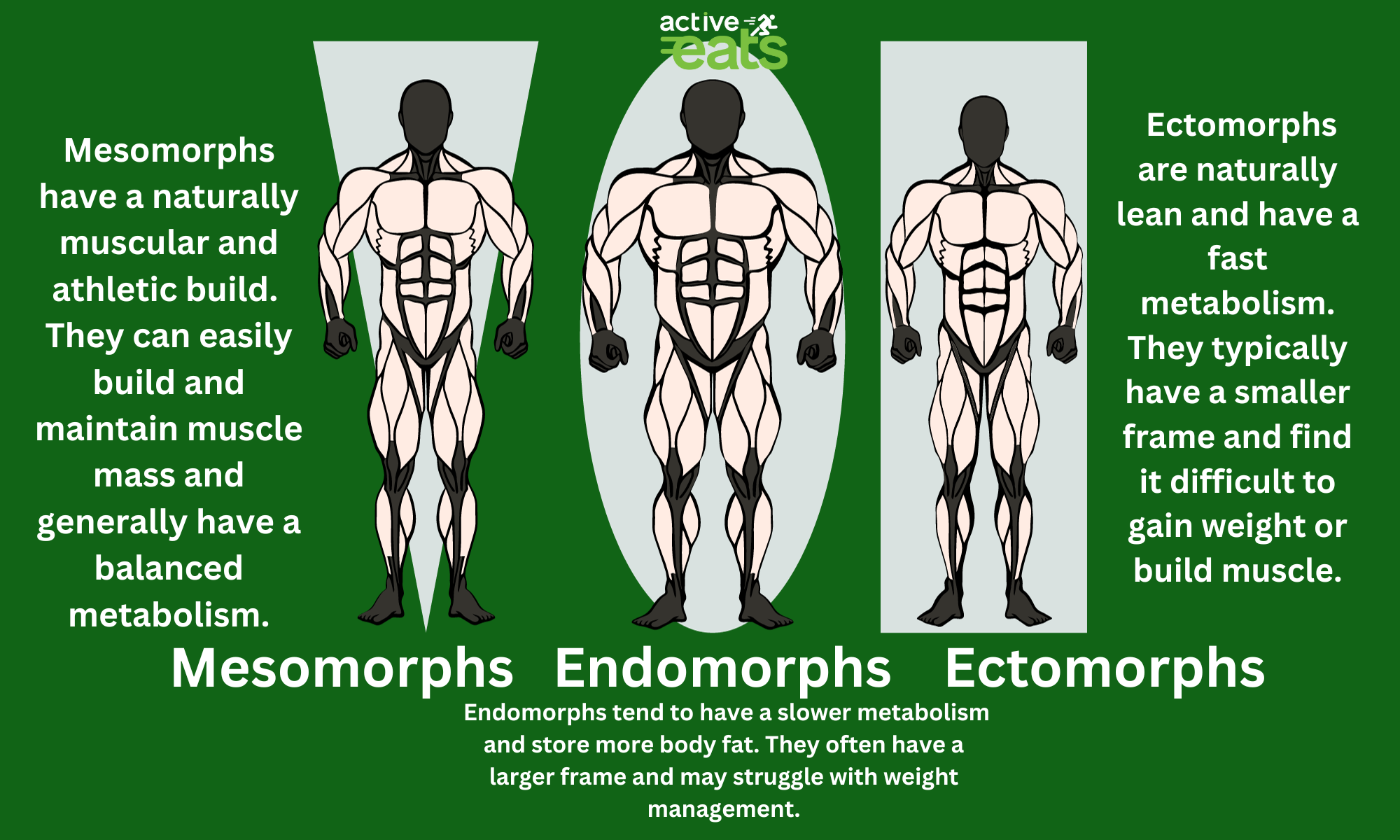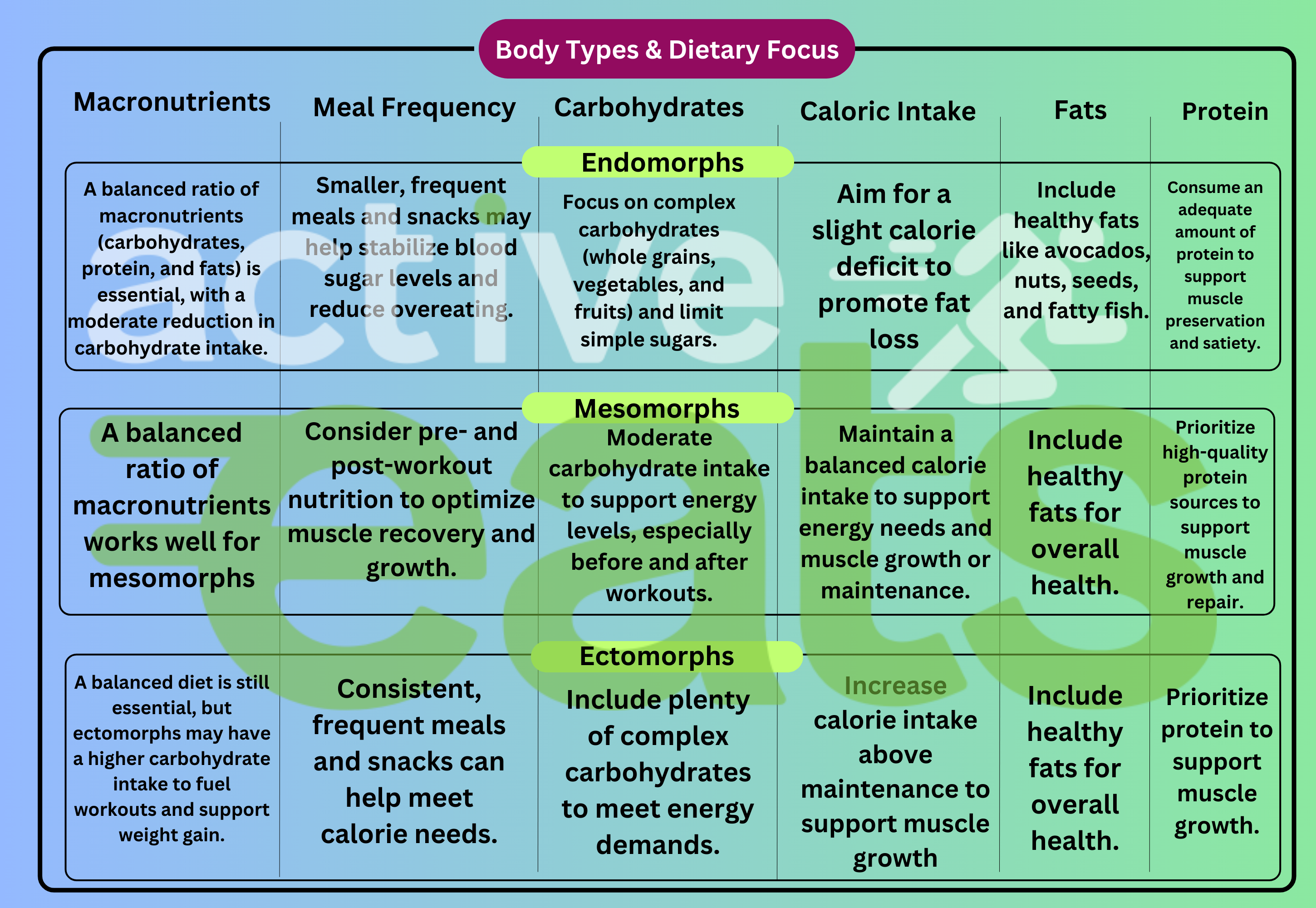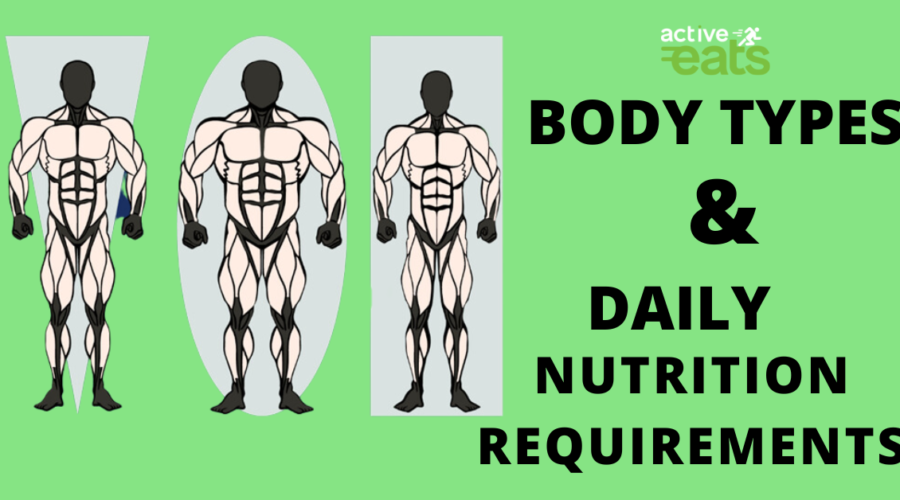Nutrition Tailored to You: Unveiling the Ideal Diet for Your Unique Body Type
You must have heard about various types of body and specific nutrient needs for each one. Understanding your body type and its specific nutrient needs can help you make informed decisions about your diet and fitness routines. In this blog post, we will explore the different body types and their daily nutrition requirements, so you can tailor your diet to meet your specific needs.
The Importance of a Healthy Diet
A healthy diet is the primary tool to achieve overall well-being and longevity. It plays very important role in maintaining physical health, mental clarity, and preventing chronic diseases. A balanced diet contains essential nutrients, vitamins, minerals, and antioxidants that fuel our bodies and support vital functions.
A healthy diet helps in First a healthy weight, reducing the risk of obesity and related conditions such as heart disease, diabetes, and certain types of cancer. It also strengthens the immune system, making the body more resilient to infections. It also enhances brain function, concentration, and mood regulation. Adequate intake of nutrients like omega-3 fatty acids, found in fish, can even help mitigate the risk of mental health disorders like depression.
Following a healthy diet plan also includes limiting the consumption of unhealthy foods high in sugar, fats, and processed ingredients.
Understanding your Body Type
Various body types processes food differently. Every body type has different metabolic rates and nutrient needs. Knowing your body type can help you personalize your nutrition and fitness plan.
Identifying Your Specific Body Type
Identifying your specific body type involves assessing your body shape, metabolism, and genetic factors. There are three main body types: ectomorphs, endomorphs, and mesomorphs.

Understanding your body type can help you determine your ideal nutrient breakdown and portion sizes. Consulting a healthcare professional or nutritionist can help you identify your specific body type and provide personalized guidance.
Meeting the Nutrition Needs for Various Body Types
Different body types have varying nutrition needs based on their metabolism, body composition, and activity levels.
- Ectomorphs: Ectomorphs may require more calories and carbohydrates to support their fast metabolism and fuel their workouts. They may benefit from a diet rich in carbohydrates, proteins, and healthy fats to provide energy for workouts and promote muscle development. Adequate protein intake is crucial for muscle repair and growth.
- Endomorphs: Endomorphs may need to focus on portion control and choosing nutrient-dense foods to support weight management. Endomorphs may need to pay closer attention to their calorie intake and the types of foods they consume. A diet lower in carbohydrates and higher in lean proteins, fiber, and healthy fats can help control body fat levels. Portion control and regular physical activity are important for managing weight.
- Mesomorphs: Mesomorphs may require a balanced intake of macronutrients to maintain muscle mass and body composition. Mesomorphs can build and maintain muscle relatively easily. They should focus on a balanced diet that includes a good mix of protein, carbohydrates, and healthy fats. Moderation is key, as they can also gain fat if they consume excessive calories. Proper hydration and a diet that supports overall health are important.
Understanding your body type can help you make appropriate dietary choices to meet your specific needs.
Addressing Daily Health Issues
Different body types may be prone to certain daily health issues. According to varying metabolic rate of body, immune system of everybody acts differently.
- Ectomorphs: They may have a harder time building muscle and may need to focus on strength training and a higher calorie intake if they desire to gain muscle mass.
- Endomorph: They may be more prone to weight gain and obesity, which can increase the risk of various health issues, including heart disease, type 2 diabetes, and joint problems. Managing diet and exercise is crucial for maintaining a healthy weight.
- Mesomorphs: While they may have genetic advantages in terms of muscle development, they are not immune to health issues. Maintaining a balanced diet and regular exercise is essential for overall well-being.
Understanding your body type can help you address and manage these specific health issues.
Customizing Your Daily Nutrition
Customizing your daily nutrition involves understanding your body type, nutrient needs, and personal goals. Adjusting your macronutrient ratios and portion sizes based on your body type can help optimize your energy levels and body composition.

Creating a Balanced Dietary Plan
A balanced dietary plan ensures that you consume all the necessary nutrients in the right proportions. To create a balanced dietary plan, consider the following:
Include a variety of foods from different food groups to meet your nutrient needs. Choose whole foods over processed foods to maximize nutrient intake and minimize empty calories. Balance your intake of macronutrients (carbohydrates, proteins, and fats) to support overall health and body composition. Consider incorporating fruits, vegetables, lean proteins, whole grains, and healthy fats into your meals.
Conclusion
In conclusion, understanding your body type and its specific nutrition requirements is crucial for maintaining overall health and achieving your fitness goals. By identifying your body type and personalizing your nutrition plan, you can optimize your energy levels, support weight management, and prevent common health issues related to your specific body type. Following recommended daily intake guidelines and creating a balanced dietary plan that includes a variety of nutrient-dense foods can help you meet your body’s nutritional needs. Remember to consult with a healthcare professional or registered dietitian for personalized guidance on customizing your daily nutrition. With the right approach to nutrition, you can enhance your well-being and achieve optimal body function.

